Council Cuts To Send Transport Will Affect Post-16 Education Access
Cut backs on school transport could impact Send pupils accessing post-16 courses
Children and young people with Special Educational Needs and Disabilities (Send) in Bristol, may find themselves unable to access post-16 placements due to school transport cuts.
According to a report going to Children and Young People Policy Comittee this month, Bristol City Council is reducing transport for post-16 students from this September. Its Equality Impact Assessment (EIA) says that this could potentially ‘reduce’ the number of Send students accessing post-16 courses. The council says the cuts could also ‘reduce employment opportunities’ for Send students.
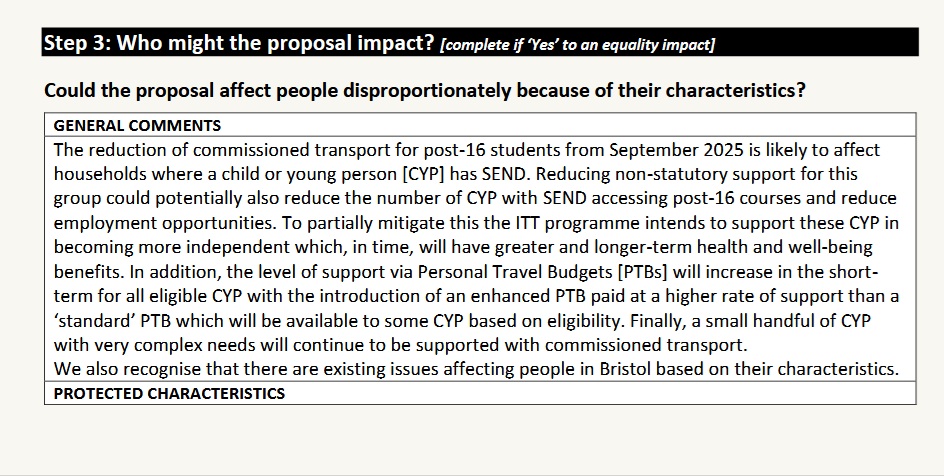
The main report is authored by Head of Children’s Commissioning Gail Rogers. The EIA has been signed off by Director of Children and Families Fiona Tudge.
Under mitigations in the EIA, it is reported that an Independent Travel Training (ITT) programme is intended to support those affected by transport cuts. This, according to the council, will make Send children ‘more independent’. Additionally, the paper says, that this will mean that Disabled children and young people will see ‘greater and longer-term health and well being benefits’.
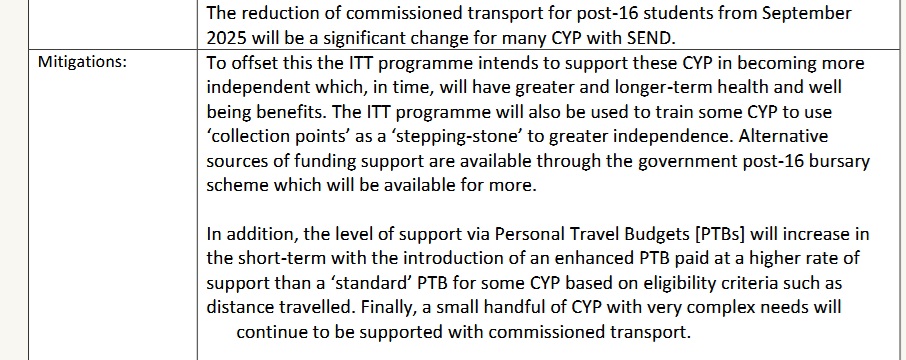
As well as the training programme, ‘collection points’ are also being introduced to enable ‘greater independence’. This means that children and young people may have to make their way to a central location where ‘several’ children may be picked up at a time.
The report says that collection points would be ‘safe’ and ‘near to the homes of children and young people…’. But the council has considered central meeting points as far as a 26 minute walk away from a young person’s home.

According to a consultation regarding the cuts to post-16 transport which took place between 04 December 2023 and 17 January 2024, a point around 1600 meters from home – calculated to be a 26 minute walk – had been suggested.
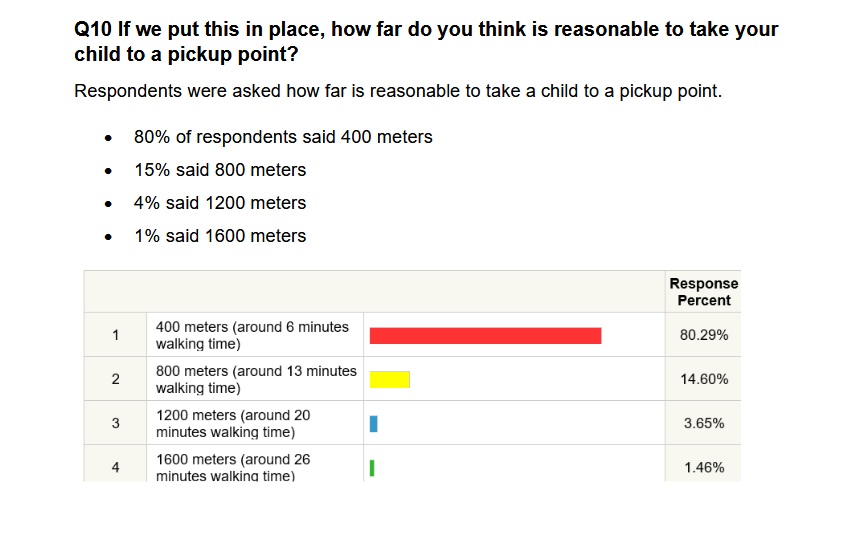
In other consultation questioning regarding the suggested ITT programme, 45 per cent of respondents said that they would not agree to their child taking part.
Of those who said no – 86 respondents – 45.45 per cent said that the ITT programme was not suitable for their child.
Another 29.55 per cent said the school is ‘too far away’ for independent travel. And, 7.95 per cent said there is a ‘lack of public transport’ to the child’s education setting.
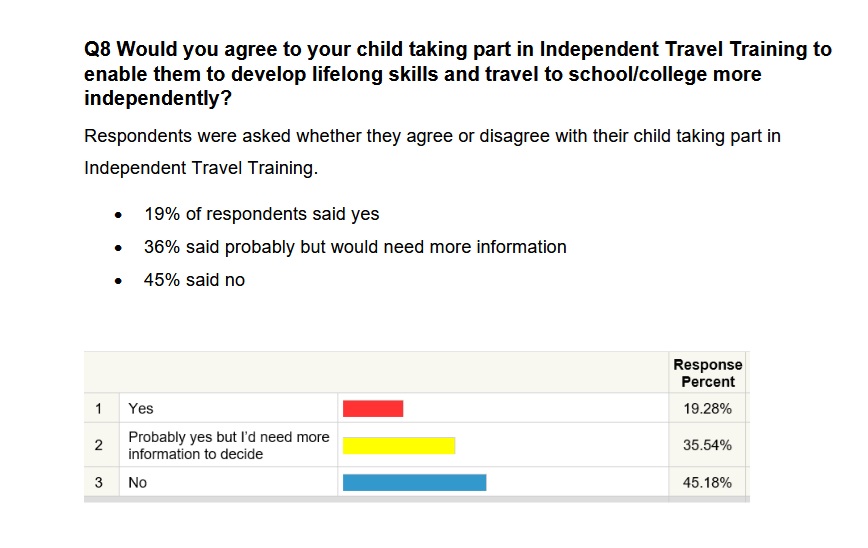
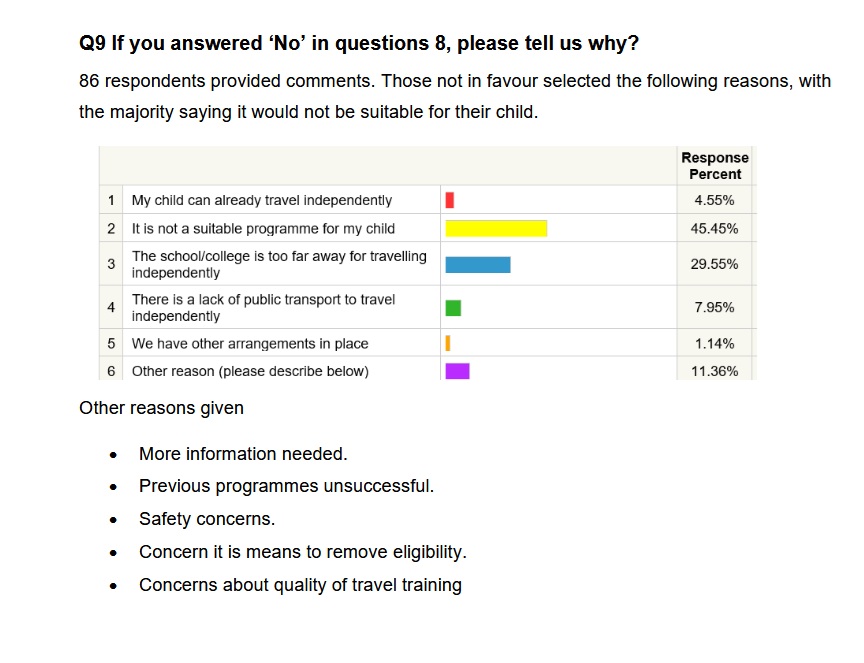
Other issues raise by those responding to the consultation said that they had ‘safety concerns’ and that previous programmes their child had attempted had been ‘unsuccessful’.
The post-16 cuts to Send transport is part of Bristol City Council’s attempt to ‘deliver significant savings’ for the academic years of 25/26, 26/27 and 27/28.
Rogers’ report says that the council needs Transformation Reserve funding to improve the Home To Travel Service. It blames the number of Send pupils who are ‘eligible’ for travel support. This, Rogers says, ‘continues to grow citing the number of Education Health Care Needs Assessments being ‘actioned’. It’s causing transport costs to rise because the council is ‘heavily dependent’ on education settings outside of Bristol. This is due to a ‘lack of provision locally’.
Bristol City Council says there will be an introduction of an ‘enhanced’ Personal Travel Budget in the short term for eligible students. Only a ‘small handful’ of Send pupils with ‘very complex needs’ will ‘continue to be supported with commissioned transport.’
Also on the agenda for the same meeting is an item on NEET Reduction and Youth Guarantee Report. This comes from Head of Employment, Skills and Lifelong Learning Jane Taylor. NEET stands for young people in England who are Not in Education, Employment, or Training.
Taylor’s report said that there was a ‘lack of sufficient’ Post 16 provision in ‘key localities’. The report also said that young people are ‘impacted by inadequate and expensive public transport, particularly those living in peripheral areas of Bristol.’
The Post-16 team’s analysis stated that the council needed to continue to improve specialist support and post 16 pathways – ‘including the local offer for young people with SEND…’.
According to the latest data in the NEET papers, there were 373 young people in Bristol aged 15/16 who were at risk of becoming NEET in July 2025.
In July this year, there were 697 young people who were NEET. And 2,235 young people aged 18 – 24 claiming out of work benefits.
A data report by Post 16 Manager David Harrigan, found in June this year that Bristol had the highest number of young people aged 16 to 24 in England who are NEET.
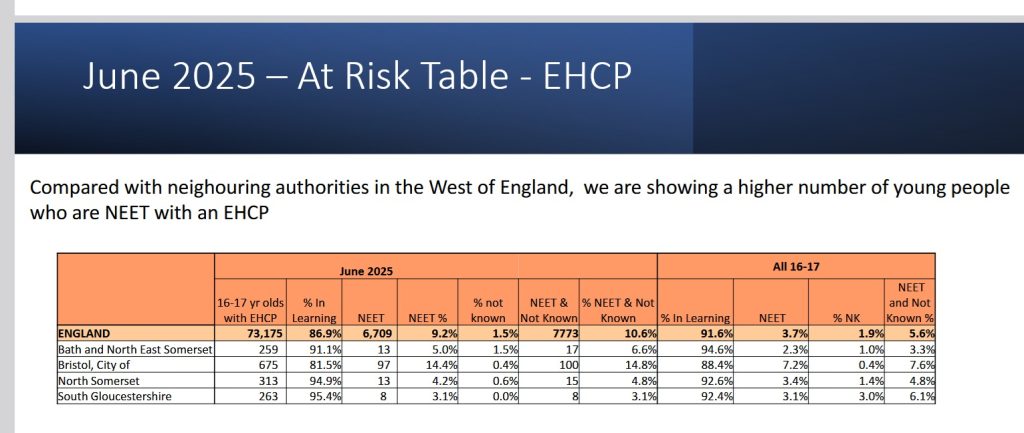
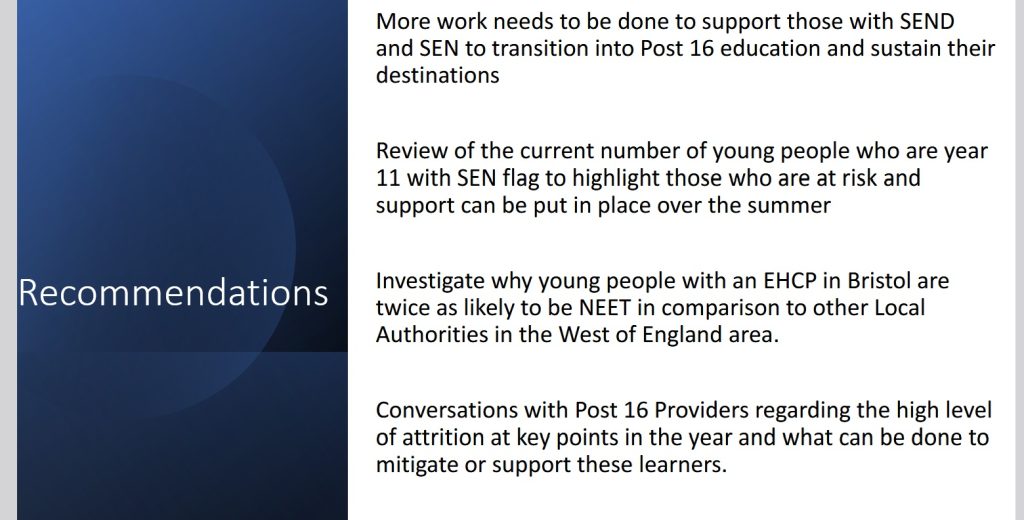
Harrigan’s report recommended that more work needed to be done to support pupils with Send to move into Post 16 education – and support them to stay there.
He also said the council needs to ‘investigate’ why young people with an EHCP in Bristol are ‘twice as likely’ to be NEET in comparison to other West of England Local Authorities.
Chloe, a Bristol Send parent told us what a “worrying” time she was having thinking ahead to post-16 options for her Disabled child.
“My son is at special school now. I don’t know what is going to happen for post-16. How can we name some place on the EHCP that can meet needs to be told he can’t get transport? The big colleges are no good. They can’t meet his needs. Lots of other parents have the same worries. It’s just another headache all over again. It’s not our kids’ faults that there aren’t enough special school places in Bristol.”
More Bristol News from Chopsy Bristol
Twitter: https://twitter.com/ChopsyBristol
YouTube: https://www.youtube.com/user/chopsybaby
Bluesky: https://bsky.app/profile/chopsybristol.bsky.social
TikTok: www.tiktok.com/@chopsybristoltt
